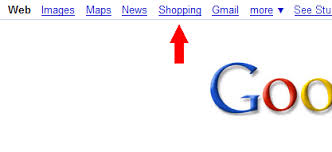Google Product Search is big business. And it’s about to change. But is it for the better?

In my previous blog in December, I wrote a quick guide to Google Product Search (GPS), including making the most out of its features and changes that had recently been implemented.
In it, I detailed how valuable a service it was for e-commerce sites that feature a vast amount of tangible products. High value traffic to your site naturally arises from this kind of search; leading to good ROI. Recent analysis from Channel Advisor has shown that GPS drives around $1.3 billion globally, making it big business for retailers.
I also detailed the changes that had been made in late September regarding streamlining and the merging of data in the product feed, showcasing how Google has a habit of making changes to this service. Adhering to these new requirements proved to be a rocky transitional period for some businesses, with many feeling the impact of failure financially. Listings not being shown was a killer blow for some businesses who relied on this service, and troubleshooting problems proved a headache for many.
Well, time rolls on and once again we are at a point of critical juncture for this extremely useful and profitable service, with massive changes on the horizon that will change this provision irrevocably.
The Change

Image courtesy of eCommerce Optimization
In May, Google announced plans to improve their shopping experience by transitioning the free service of GPS to a purely commercial model based on Product Listing Ads (PLA), called Google Shopping. Thus, ranking will be based on a combination of relevance and bid price. This change is to occur transitionally from July to the final cut-off date of October (in the US), giving merchants time to adjust and formulate strategies to cope with the change. And as we have seen with other changes, what happens in the US often doesn’t take long to make its way to other countries however this not confirmed and is not likely to be rolled out here before the new year if it were to be confirmed.
The Implications
Google have defended this move by stating:
“We believe that having a commercial relationship with merchants will encourage them to keep their product information fresh and up to date. Higher quality data, whether it’s accurate prices, the latest offers or product availability, should mean better shopping results for users, which in turn should create higher quality traffic for merchants”
Many people have been very critical of this move, saying that the implied improvements are a thin veil for Google to increase revenue and share price. Many smaller merchants fear that they will not be able to use what is a critical aspect of their online business due to small ROI not enabling them to compete with giants like Amazon and eBay.
It could also present other additional opportunities to online market places like eBay, to the detriment of Google itself. Sellers, who had previously moved away from eBay for the independence and opportunity of a free marketplace with GPS, may now move back to recover some of their revenue and traffic that will be lost as a result of the removal of free product listings.
As well as hurting smaller merchants, it could also appear to hurt the customer. With these merchants in theory being driven out of the market due to rising costs, it leaves customers with less choice by limiting the number of products on offer, which can only be to the detriment of the Google Shopping experience.
Despite reassurances from Google, we can also see the potential impact to organic listings if Google indeed intends to go through with the placement of Shopping results just above the first organic listing. This could potentially devalue the organic listings on product-specific searches and reduce the amount of organic listings we will see on the first page of the SERPs.
For more on the new interface and how it will work see this excellent blog.
How do you adapt?
With many sellers not having the time, resources or expertise to manage this kind of campaign at a cost effective level, it will become imperative for them to become experts in the field; or consult with someone who is. This will enable you to properly optimise your shopping feeds and bids to ensure you are not wasting your money.
With that in mind, this will not be like optimising for Search Results. Many things are different and require a different level of thinking than previously with GPS or with other programmes like Adwords. (Differences include things like product-not-keyword level thinking, group target bids etc). So getting additional expertise in this specific field will be crucial to running a successful campaign.


